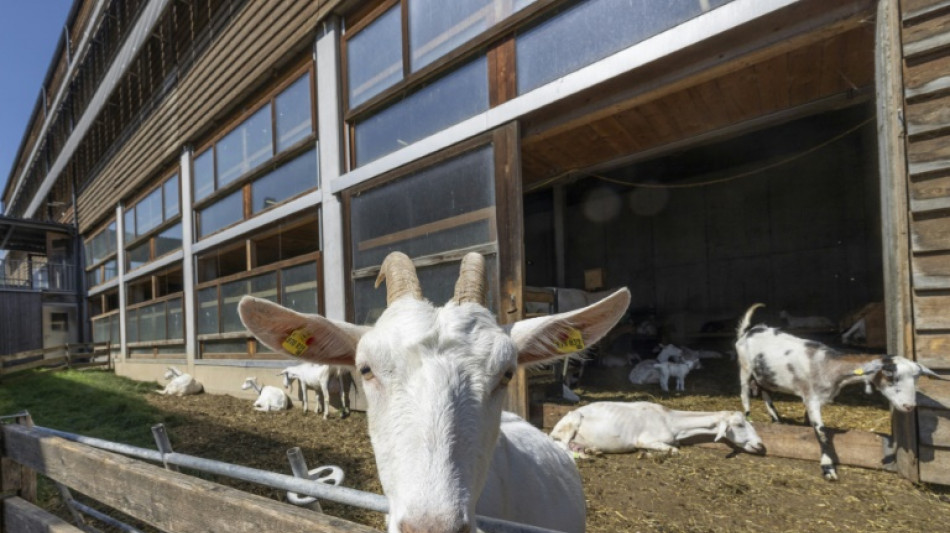Austria designer farm stands out in struggling field / Photo: ARND WIEGMANN - AFP
In idyllic western Austria, Ingo Metzler's goat breeding farm with its striking light wood panelling and big glass facades sets itself apart, aiming to survive in a sector in crisis.
"Architecture is a way of expressing our innovative approach and our values," says Metzler, 58, who took over and spruced up the family farm in Vorarlberg, a region which is a pioneer in sustainable design.
In the past three decades, the Alpine nation of nine million people has lost more than half of its 200,000 farms with the agricultural sector today accounting for only 1.5 percent of its GDP.
Vorarlberg -- with more than 200 architects for around 410,000 inhabitants -- has "a very old tradition of wooden construction... with a network of artisans always focused on the spirit of the times" and sought after all over the world, according to Metzler.
Metzler said he had no other choice but to move upmarket in the face of "difficult conditions: sloping terrain, harsh climate, small production with significant fixed costs".
"We knew that we would not win the price war," said the farmer, who now sells cheese from goats' milk but also high-end beauty products containing whey.
- 'Prestige' -
Today the Metzler farm -- sporting solar panels and wood panelling from spruce trees from the region -- attracts visitors.
Some 10,000 people per year come to explore the premises and check out the some 100 goats.
Metzler says "animal welfare" is the priority with for example, dominant individuals able to access raised boxes "so that the animals are not stressed".
For the design, Metzler approached Christian Laesser when he heard the architect of schools and villas had rebuilt the family barn after a fire there.
"He came to see me. The fact that I grew up on a farm allowed me to know the specific constraints of this type of construction," Laesser tells AFP.
"Cheese factory, warehouses, cold rooms... I knew the processes," he adds.
He says architecture students are increasingly interested in the agricultural sector with farms, in turn, opening their doors to the public as many people are keen to see from where their food comes.
"People are very happy to see us at the forefront, while around us farmers are going out of business," says Laesser's nephew, Stefan Laesser, who also recently had his uncle redesign his farm, adding design gives "a certain prestige".
Metzler, too, is reassured: where others have left their farms, three of his four sons work alongside him -- with their own designs in mind.
B.Chakrabarti--BD
